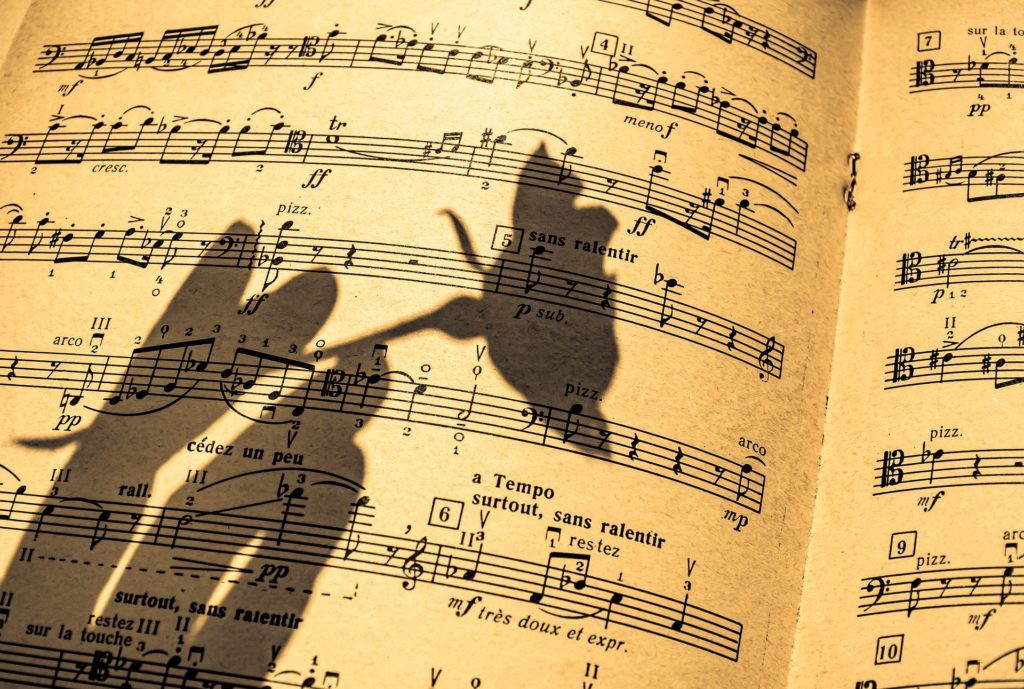The Crypto-NFT-Future of SoundCloud According to Its CEO
In August 2007, two Swedes in Berlin, Germany – Alexander Ljung and Eric Wahlforss – established SoundCloud. They launched the said website in October 2008. The two's original intention was to make a website where music artists could collaborate. SoundCloud would facilitate the sharing and discussion of recordings. Though, as you can tell from how SoundCloud is now, it has transformed into a music distribution tool.
Wired magazine said that SoundCloud challenged MySpace's role as the primary distribution platform for music artists. MySpace now only lives in people's memories. Meanwhile, SoundCloud is still standing strong. Needless to say, it has succeeded in surpassing the former.
SoundCloud's presence and contribution to the music industry are undeniable. The social media platform helped shape the industry in different ways. For a few examples, it gave opportunities to aspiring artists and produced some of the brightest stars today.

Now, someone has raised a question to the company's current chief executive officer, Micheal Weissman. Music Business Worldwide asked him what he would change in the music industry today if he had the power to do so. To the interviewer's surprise, Weissman said he “wouldn't change a thing.” That's a response they have never heard before.
Shifts and changes are essential to the growth of anything. So, SoundCloud's CEO's answer came as a surprise. But if you look at what the company has done already, especially this year, you will understand why he said it.
Here, let us take a deeper dive into what SoundCloud is at its core. Learn how its CEO sees the platform and get news on his plans for its future. It will help you understand why SoundCloud did the things it did. The next decisions, as well, will make more sense if you know of these.
SoundCloud's Business
SoundCloud simultaneously runs two businesses. It serves both creators and the general population who only wish to listen to music. And so far, it is the only platform that has seen success in doing so.
The first of its business is the music-streaming service. People can visit SoundCloud and listen to music for free. Paid tiers exist for those who want to enjoy offline listening and an ad-free experience.
There are over 250 million tracks on SoundCloud. But that's the only thing it has over other similar services such as Spotify.
What separates SoundCloud from those is its artist-serving business. It serves over 100,000 music artists. SoundCloud provides them with a space where they can publicize their works. On top of that, SoundCloud also distributes the artist's works to other services like Spotify and Apple Music. Furthermore, it handles the collection and distribution of royalties.
SoundCloud also has acquired Repost. With this acquisition, the platform helps rocket emerging artists into the mainstream.
This business is unique. But out of the two, it is the lesser element. The music-streaming service has generated twice as much money as its artist-centered business did.
However, that's the case only for now. On a percentage basis, SoundCloud's creator business has been growing a lot faster than its ‘Listener' business. Moreover, last year, the independent artists on the platform generated an estimated $1.2 billion globally. That is a 34% YoY growth. With the launch of the “fan-powered royalty” system last April, that is about to increase further.
That is why SoundCloud's CEO has said he wouldn't change anything without second thoughts. It is because the change has already happened.
Fan-powered Royalty
People in the music industry have been asking for this for many years. So when SoundCloud announced that it is adopting this monetization system, everyone rejoiced.
What is this exactly?
In FPR, the creators on SoundCloud directly earn money based on how many times their fans have played their music. That is in contrast with the previous system – which many have deemed unfair. The said system puts all the generated money in a pool. And then, SoundCloud divides that based on how much the artist has contributed to the total number of plays on the platform. So, in this system, only the big names actually benefit. Small artists get less than what they deserve. Although, this is why so many artists continue to buy SoundCloud plays to help gain traction – because it works!
Weissman said that most users thought FPR had been in play since the beginning. After all, that is the most sensible thing. So, there was a disconnect. That pushed SoundCloud to put this move on its priority list.

The CEO said that SoundCloud has a direct relationship with both consumers and artists. And, it is the only business that has that. So, the company sees connecting these two as its responsibility.
Where SoundCloud is heading
Weisman also answered another question that reveals future plans for the company. When asked what else separates SoundCloud from its peers, he said it's the commitment to music.
Weissman said he had seen streaming services move into talk, podcasts, and non-music audio. He says that at SoundCloud, they plan to do the opposite. SoundCloud wants to be deeper in the music industry. “We think music is an exciting place to be,” he says.
Therefore, instead of supporting a new batch of creators, SoundCloud decided to support the artists that are already there. Podcasts have been in SoundCloud already. But it is crystal clear that they are not the content SoundCloud wants to advertise the most.
Weissman says that SoundCloud is looking for new ways to support the independent music artists on the platform. He mentioned NFTs and direct artist subscriptions – both of which SoundCloud plans to integrate into its system. Right now, though, they are still looking for effective ways to do it.
Weissman also discussed tips. He said that had crossed their minds. But, they erased the thought after concluding that tipping would not change much.

With these plans and what's happening in SoundCloud right now, Weissman believes the company is at “the right spot at the right time.” He says the music business is headed where SoundCloud wants it to go. And hence the statement that he would not change anything.
Are SoundCloud Executives Quitely Discussing Crypto and NFTs as a Revenue Source?
It's 2022 now, and if Nintendo is already knee-deep in a plan to adopt this new technology, you can bet your bottom dollar, or non-fungible-token, that SoundCloud might “play” around in the space soon. They have recently grown into an adoption stage of enabling and allowing subscribers to pay, donate, and essentially send money directly to artists on the platform. This has caused a surge of loyalty among the hesitant, child-filled music space who often find great barriers to monetization, and even higher walls preventing artists from becoming self-sustaining musicians.
If SoundCloud uses already developed APIs of many common crypto-marketplaces, it might make it even easier to send artists such small amounts of money, without adding any real or technical costs. Imagine you would like to send an artist $0.005, or half a cent. Obviously, there is no way you could do this, especially if you wanted to take a $5 bill and automatically split it as a donation across your Top 100 artists you enjoy on the SoundCloud platform. However, with the adoption of cryptocurrency and NFTs, this could be a reality. When you consider the high volume of listeners out there, how many would feel generous, especially near the joyous holiday season with their wallets?
Imagine it's the day before Christmas, and you get an automated email from SoundCloud. Inside this email is an offer to automatically split and send $5 or $10 divided equally, or even proportionally of your listening habits, to all the artists and creators whose work you have enjoyed over the past year? It would be a very cool and generous investment that would only help increase the highly sought-after musical and artistic loyalty many already have towards the platform. Even better, at least from SoundCloud's perspective, the musical community would come in droves rather quickly, as it would be direct to artist investment that SoundCloud wouldn't even be able to siphon a portion of funds off of. It would be seen as a near revolutionary act that would help improve the artistic scene at a very real and financial level.
SoundCloud's Automatic Crypto-Splitting Payments to Artists Would Help Sustain a Generation of Artists
Seriously, ask yourself how you would see the vast array of journalists and media pundits cover a story such as this? In this highly divisive world we find ourselves in, this would be a shot heard all around the world, literally crossing and crushing barriers to entry for many artists in especially impoverished countries. In fact, it may prove to be a life-changing tool that could help not only escalate the young and musically talented creatives in many third-world countries but could help revitalize local, hard-to-reach economies across the globe.
From a humanitarian perspective, how many ancient songs, played on relics of musical instruments, would be brought forth and captured, recorded, and saved for future generations could be saved? There would be moving collectives and co-ops of musical instruments managed at the local level that would help catalog and document every song that the living, breathing, humans can still remember to play. We may save countless songs that would otherwise fall beneath the sands of time, capturing and preserving our great worldly culture for the future.
Spotify would be viewed as greedy for not taking such a step and measure, and would quickly be targetted with many pointed and leading questions, “how could they not have done this years ago?” It's a perfectly fair question, but they possess the musical industry's biggest titans, and they have a financial ecosystem to protect. SoundCloud is the cutting-edge of the musical tomorrow that might actually be brave enough to launch us into a world where technology actually improves our lives again, instead of being data-mining, info-harvesting, privacy destroying parasitic entities we take vacations from to here remote songs of our distant cousins.
Date: January 12, 2022 / Categories: New Stuff, / Author: Joy P
12
2022
Joy P